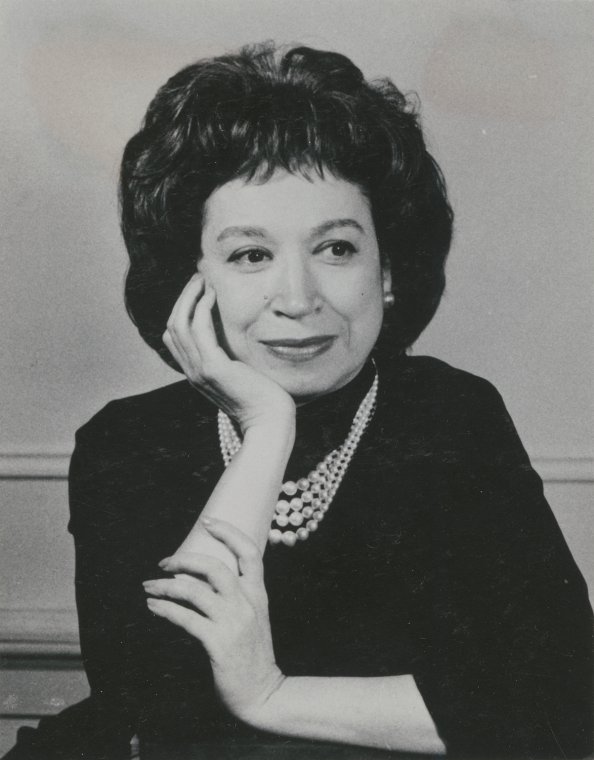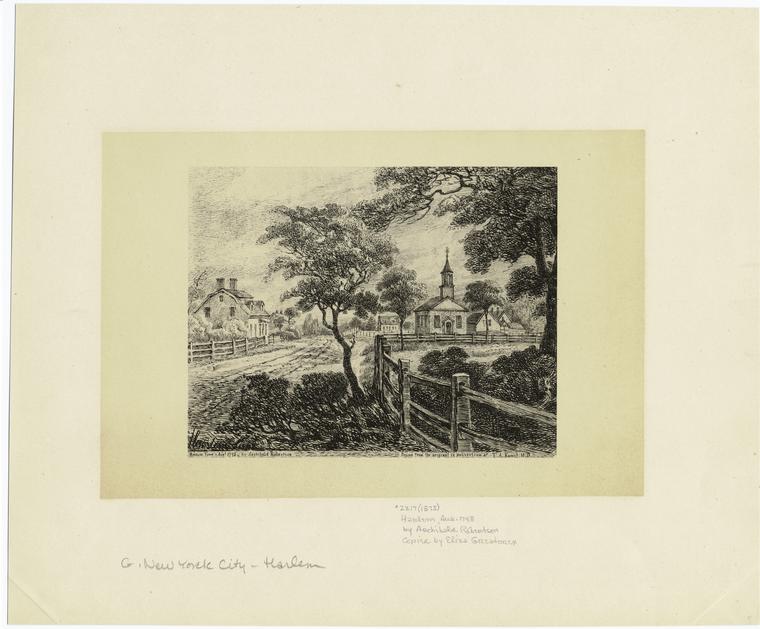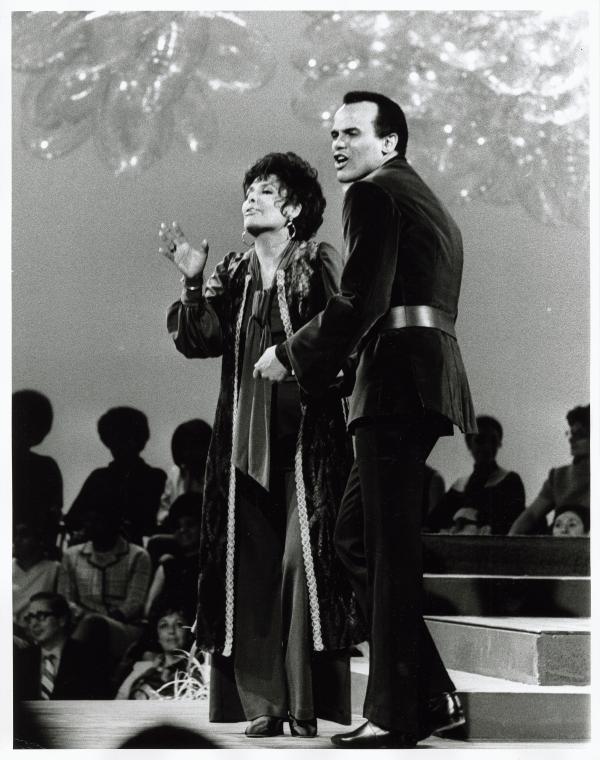Live from the Reading Room: Nathan Woodard to Alice Childress
by Alexsandra Mitchell, Reference Librarian and Archivist, Manuscripts, Archives and Rare Books Division, Schomburg Center for Research in Black Culture
February 19, 2016
A love letter from musician and composer Nathan Woodard to his wife and creative collaborator Alice Childress.
Presenting... The Schomburg Mixtape
by Candice Frederick
February 1, 2016
"I have a voice. My voice is powerful. My voice can change the world." Listen to 15 audio conversations from the Schomburg Center's extended family.
The Harlem Burial Ground
by Sylviane Diouf
January 25, 2016
Another African Burial Ground was officially “discovered” in New York City a few days ago. If this is news to most, it is not to preservationists, historians, and archivists who have been aware of the existence of the cemetery for years.
New Acquisitions in the Schomburg’s Art and Artifacts Division
by Candice Frederick
January 22, 2016
Tammi Lawson, Assistant Curator of our Art and Artifacts Divisions shares some of the Schomburg's newest gems.
How the American Negro Theatre Shaped the Career of the Iconic Harry Belafonte
by Candice Frederick
June 26, 2015
Farrah Lopez, our Communications Pre-professional, shares how our 75-year-old American Negro Theatre helped shape the career of the iconic Harry Belafonte.
A Decade for People of African Descent
by Sylviane Diouf
December 15, 2014
On December 9, ambassadors, UN dignitaries, students, and others, gathered in the Langston Hughes atrium for a pre-event to Human Rights Day and to the official takeoff of the International Decade for People of African Descent, both happening the following day.
Africans in India: Then and Now
by Sylviane Diouf
October 17, 2014
The Schomburg Center's exhibition Africans in India: A Rediscovery recently opened in New Delhi, India's capital, against a backdrop of racist attacks against Africans. The contrast between the African experience of yesterday and that of today could not have been greater and the exhibition could not have come at a more appropriate time.
The Americas' First Muslims
by Sylviane Diouf
October 13, 2013
This week, 1.5 billion Muslims will celebrate Eid-al-Adha, the Feast of Sacrifice, or Tabaski as it is known in West Africa. Very few among them will have a thought for the hundreds of thousands of enslaved West Africans who, during almost four centuries, practiced Islam in the Americas. Although they left significant marks of their faith, cultures, and traditions, the Africans who first brought Islam to these shores have been mostly forgotten.
Asia's Africans
by Sylviane Diouf
May 2, 2013
May is Asian-Pacific American Heritage Month. What better time to discover or learn more about Afro-Asians? As our groundbreaking exhibition Africans in India shows, some became navy commanders, army generals, and founders of dynasties. In Ahmedabad, in the Indian state of Gujarat, they left an impressive architectural legacy. Today, some Sidis live there in a small compound where they proudly maintain their culture.
Africans in India: From Slaves to Generals and Rulers
by Sylviane Diouf
March 11, 2013
Generals, commanders, admirals, prime ministers, and rulers, East Africans greatly distinguished themselves in India. They wrote a story unparalleled in the rest of the world — that of enslaved Africans attaining the pinnacle of military and political authority not only in a foreign country but also on another continent. Come discover their extraordinary story in a groundbreaking exhibition at the Schomburg Center — on view from February 1 to July 6 — and on March 21, join Dr. Faeeza Jasdanwalla, a descendant of the African dynasty of Janjira for a conversation on this
Bollywood and Africa: A Love Story
by Sylviane Diouf
December 6, 2011
Few people in the West have heard international superstar Akon's new hit. But tens of millions throughout the rest of the world have been dancing to Chammak Challo for weeks. Why? Because the catchy tune is the musical centerpiece of the latest Bollywood sci-fi blockbuster Ra. One, whose (super) hero is no other than Shahrukh Khan, the most popular actor in the (rest of) the world. That Akon, a Senegalese,
Sannu Niger!
by Sylviane Diouf
November 22, 2011
ferdinandreus on flickrThe capture last week of Saif al-Islam Qaddafi who, disguised as a Tuareg, was trying to flee to Niger — where one of his brothers and some high-ranking officials have found refuge — has turned a spotlight on a country few people have heard of.
“Niger? You mean
The Autobiography in Arabic of a Senegalese Enslaved in North Carolina
by Sylviane Diouf
September 26, 2011
In 1831, Omar ibn Said, a Senegalese trader and Qur'anic teacher enslaved in North Carolina, wrote his autobiography in Arabic. It is the only known surviving slave narrative written in that language in the Americas. On October 13, at 6pm at the Schomburg Center, Yale Professor Ala Alryyes will present A Muslim American Slave: The Life of Omar Ibn Said, which features a new
 With your library card, it's easier than ever to choose from more than 300,000 e-books on SimplyE, The New York Public Library's free e-reader app. Gain access to digital resources for all ages, including e-books, audiobooks, databases, and more.
With your library card, it's easier than ever to choose from more than 300,000 e-books on SimplyE, The New York Public Library's free e-reader app. Gain access to digital resources for all ages, including e-books, audiobooks, databases, and more.















